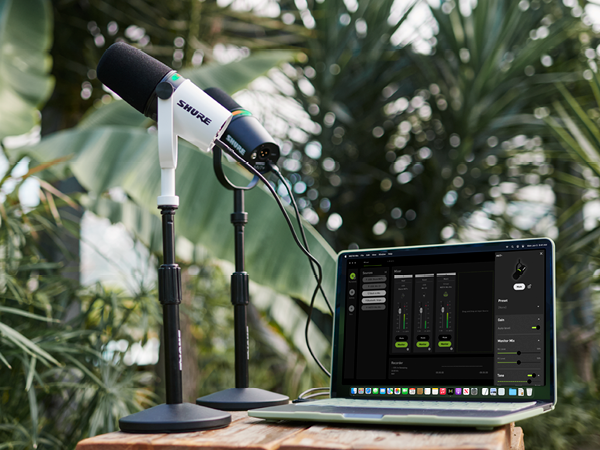Apps
Hyundai to Intro Smartphone-Based Digital Key on New Cars

Hyundai has announced plans to introduce new ‘digital key’ technology on future models, allowing drivers to unlock and start their car via a smartphone. Selected new cars will start offering the technology during 2019. Users will download the digital key as an app, with each car allowing up to four authorized devices.
The system uses highly secure near field communication (NFC) technology, with antennas fitted in the front door handles and in a wireless charging pad inside the car. Users unlock the car by bringing an authorized smartphone close to the door, then start the car by placing it on the charging pad and pressing a start/stop button.

The vehicle will also recognize each user’s preferred settings, such as position of mirrors, seats and the steering wheel, as well as controls for the audio, video and navigation systems, and the head-up display.
“This is a practical application of Hyundai’s connected vehicle technology to create new, genuinely useful functions,” said Mike Song, Hyundai’s Head of Operations for the Middle East and Africa. “Not only will people be able to use their smartphone in place of a key, but they will also be able to authorize other drivers simply by sharing the app, without having to keep track of multiple sets of car keys.”
When sharing the car, a Hyundai owner will be able to limit the functions available for each digital key. This could include placing a time-limit for when the key will expire or setting an alert to warn the owner if the car is being driven too fast or is outside a designated area.
As well as offering convenience for drivers, the new technology also recognizes the changing nature of mobility and car ownership, such as the growing popularity of car-sharing schemes. Once car-sharing becomes more widespread, the digital key will be further programmed to support hassle-free vehicle rental, so the owner and driver can share a key without needing to meet in person.
Conventional or card-type keys will still be provided for those times when sharing the digital key would be impractical, such as when leaving the car in a repair workshop or valet parking.
NFC is a form of Radio Frequency Identification with high levels of security, data transmission only taking place when the device and reader are no more than a few centimeters apart. It is the same technology used for contactless payments via a smartphone.
“The Digital Key will benefit a very wide range of future Hyundai customers, as well as enabling innovative new schemes for vehicle sharing,” said Ho Yoo, Group Leader of Hyundai Motor Group’s Electronics Development Group. “We are studying other ways to harness this type of connected-car technology to greatly enhance the driving and ownership experience.”
Hyundai has also outlined plans to be the first car company to introduce smart fingerprint technology that allows drivers to unlock and start the car. Announced late in 2018, fingerprint technology will be introduced for selected markets on the New-generation Santa Fe to be launched during the first quarter of 2019.

Apps
Shure Launches the new MV7+ Microphone

Shure has launched its new hybrid XLR/USB dynamic microphone with the launch of the MV7+ Podcast Microphone. The MV7+ is aimed at those seeking to capture broadcast-quality audio in even the most challenging of spaces. With Shure’s cutting-edge Voice Isolation Technology, the focus lies on the user’s voice, avoiding annoying background noises and ensuring outstanding audio for every recording and streaming session.
It also includes a new, innovative onboard Digital Signal Processing (DSP) engine which powers a suite of advanced features, like an improved Auto Level Mode, a Digital Popper Stopper for enhanced plosive control, Real-time Denoiser, and Adjustable Reverb. Thanks to its unique full-touch LED live meter display and numerous customization options, the MV7+ sets a new standard in sound quality and personalization while diving into a vibrant world of colour.
To elevate the user experience to the next level, the MV7+ podcast microphone integrates with the free, new MOTIV Mix Desktop app, Shure’s latest MOTIV software interface. MOTIV Mix provides users with the ability to configure all aspects of the MV7+. The software also offers multi-track recording and routing to support users with greater control of their live streaming and recordings. With MV7+ and MOTIV Mix, it’s easier than ever to sound authentic, freeing up creators to let their imagination shine brightly.
“Modern content creators and streamers are constantly searching for new ways to customize their set-up and sound to set themselves above the pack,” said Sean Sullivan, Associate Director of Global Product Management at Shure. “The MV7+ is our answer to this challenge. It builds off the legacy of the MV7 and delivers broadcast-quality audio in any setting while empowering creators with intuitive customization and control. Through our latest DSP innovations and the new MOTIV Mix desktop app integration, the MV7+ is set to redefine excellence in audio recording for every session.”
New Features and Benefits:
- Multi-Color LED Touch Panel: Elevate the audio experience with a customizable LED touch panel. Choose from over 16.8 million colours to visualize your sound levels or engage an ambient pulse effect. A simple tap anywhere on the LED Panel Live Meter instantly mutes the microphone, ensuring privacy and control.
- Real-time Denoiser: Leverage the advanced DSP technology of the MV7+ to eliminate background noise. It works in harmony with the microphone’s Voice Isolation to deliver pristine sound, even in less-than-ideal recording environments.
- Digital Popper Stopper: Remove harsh plosive sounds to avoid acoustic distractions and a cumbersome physical pop filter on camera.
- Improved Auto Level Mode: Intelligent audio adjustment adapts the microphone gain based on the distance, volume, and room dynamics, providing perfectly balanced sound automatically.
- Onboard Reverb: Choose from three types of onboard reverb settings–Plate, Hall, Studio—and set intensity levels to add desired depth and richness to recordings.
- Hybrid XLR and USB-C outputs: The MV7+ integrates into any setup as it provides hybrid USB-C and XLR output and connects seamlessly with your laptop or phone (iOS and Android), offering unparalleled flexibility and ease of use.
Shure has also announced the new MOTIV Mix software for the MV7+ microphone. This platform allows users to customize the LED panel, access up to five multi-track recording and routing channels, and fine-tune settings like sound signature, gain, and more. A Beta version of the new software will be available to experience with the MV7+ at launch, helping users reduce the number of apps needed to streamline their workflows. Key features of MOTIV Mix include:
- Multi-channel Mixer: Control multiple channels of audio to record, monitor or use your mixed audio for your live stream.
- Soundcheck: Check your mic’s gain setting and optimize it with the help of Soundcheck.
- A redefined Monitor Mix Slider: Mix mic output and system audio playback levels individually.
- Full access: to advanced DSP features of your MV7+ Podcast Microphone.
MOTIV Mix will soon be compatible with other legacy MOTIV products such as the MV7 and the MVX2U, serving as a building block for forthcoming software innovations and premium features. The MV7+ Podcast Microphone comes in two colours (black and white). The black MV7+ is available now at Shure’s official partners and Amazon. This summer, the white version will be available along with a special bundle, the MV7+ Podcast kit, that includes the microphone in black and a Gator mic stand. Each purchase comes with a 3m USB-C to USB-C cable, a printed quick start guide, and a MOTIV MIX Art Card with download instructions. Other accessories such as a 15-inch USB-C to lightning cable and a replacement foam windscreen are available for purchase individually.
Apps
Safari to Get Smarter? Leaked Code Hints at AI Assistant

Eagle-eyed developer Nicolás Álvarez has spotted clues in Apple’s backend code suggesting a major upgrade for Safari in iOS 18: a browsing assistant powered by artificial intelligence. MacRumors contributor Aaron Perris confirmed the existence of the code, but details remain scarce.
The assistant might leverage Apple’s privacy-focused iCloud Private Relay to transmit relevant data for analysis, potentially requiring an iCloud+ subscription. This aligns with the rumoured focus on generative AI in iOS 18, aiming to streamline iPhone experiences.
Several browsers already boast AI tools like Microsoft Edge’s GPT-4-powered Copilot and Arc Search’s webpage summarization. Apple’s assistant could offer similar functionality or even go beyond.
Another intriguing discovery by Álvarez was “Encrypted Visual Search” within the code. While details are sparse, it could be related to last year’s leak of a “Visual Search” feature for Apple’s unreleased Vision Pro headset. This feature allowed copying and pasting real-world text into apps. Perhaps Apple is refining the technology for a secure iPhone debut, or it might be an extension of the existing Visual Look Up feature for identifying objects in photos.
With Apple’s WWDC keynote scheduled for June 10th, we can expect official details on these potential features in just a few months. So, get ready for a potentially smarter Safari experience in iOS 18!
Apps
Android Gets Supercharged Find My Device Network: Locate Lost Devices Even When Offline

Android users rejoice! Google has finally launched its highly anticipated Find My Device network, offering a significant upgrade to lost device recovery. This new feature goes beyond the limitations of the previous Find My Device setting, which only worked for powered-on and connected devices.
The key lies in Bluetooth. This new network leverages Bluetooth signals to locate missing phones, smartwatches, earbuds, and even trackers, even if they’re disconnected from Wi-Fi or cellular data. It’s like a digital bloodhound, sniffing out your lost tech.
Here’s what the network offers:
- Offline Tracking: Lost your phone with a dead battery? No problem. The Find My Device network can locate Pixel 8 and Pixel 8 Pro phones even when powered off.
- Expanded Range: The network finds any compatible Android phone or tablet, regardless of online status.
- Bluetooth Tracker Integration: Starting in May, use the Find My Device app to locate items like keys or luggage attached to Chipolo and Pebblebee Bluetooth tracker tags. These tags are designed specifically for the network and offer additional security features, like unknown tracker alerts across Android and iOS devices.
- “Find Nearby” Feature: (Also coming in May) Can’t find your phone under a pile of laundry? Use Bluetooth tags to pinpoint its location, even if it’s hidden nearby.
- Nest Integration: The Find My Device app will show you the location of a missing phone or item relative to your home Nest devices, giving you a helpful reference point.
- Sharing Device Tracking: Permit trusted individuals to track your device with you.
This launch comes after a delay announced in September 2023. Google prioritized user privacy and addressed concerns about the potential for misuse of Bluetooth trackers. Reportedly, the upcoming iOS 17.5 beta includes security measures that address these concerns, paving the way for Google’s network launch.
While only Pixel 8 and Pixel 8 Pro benefit from powered-off tracking, the network itself works with any Android phone running Android 9 or later.





















